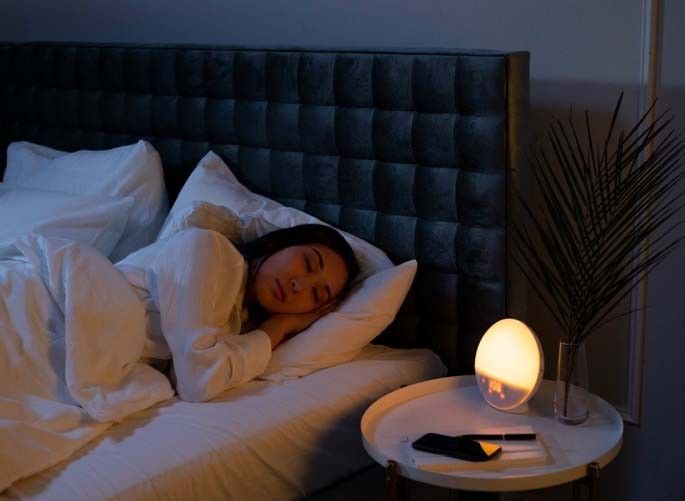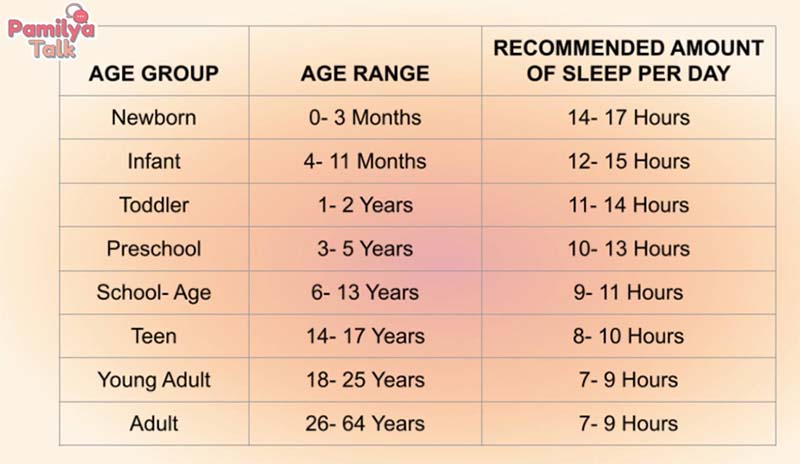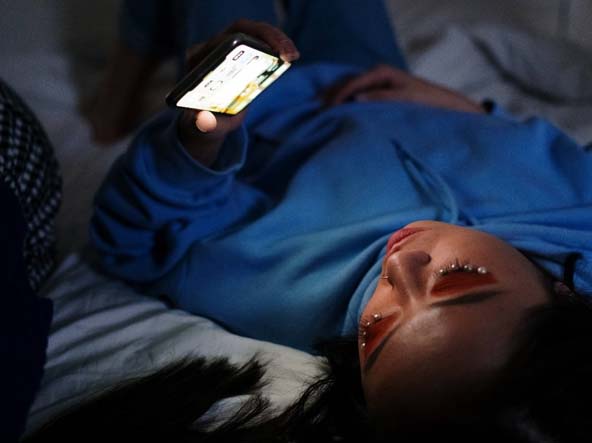The Hows of Jing: How to achieve better sleep during the pandemic


Since the pandemic hit, we had a lot of things that made us worry—our health, our financial and career stability, our family’s well-being, the uncertainty of things. These fears affect us in so many ways, and one of which is our sleeping habits.
According to the 2021 annual sleep survey done by Royal Philips (a global leader in health technology) entitled “Seeking Solutions: How COVID-19 Changed Sleep Around the World," COVID-19 had a negative impact on sleep. The study revealed that respondents across Asia Pacific and the world experienced the following:
- 22% among the respondents sleep less at night
- 44% experience lethargy during the day
- 35% feel rested upon waking up in the morning
Having continuous sleep had also been a challenge during the pandemic, with 42% of survey participants waking up during the night, 33% having difficulty falling asleep, with only 26% able to stay asleep.
The top reasons for their lack of sleep would be:
- 21% worrying and stressing about life in general during the pandemic
- 17% prolonged use of gadgets
- 16% sleeping environment
We celebrated World Sleep Day last March 18 with the slogan, “Quality Sleep, Sound Mind, Happy World.” The campaign focused on the importance of sleeping well to achieve a healthier frame of mind, which will then radiate to a happier community, and eventually the world.
We invited the vice president of the Philippine Society of Sleep Medicine and internal medicine practitioner Dr. Rodolfo “Jun” Dizon Jr. in our recent episode of Pamilya Talk’s Okay, Doc. It was a conversation filled with everything about sleep — why people are unable to have good sleeping habits and what are some solutions in fixing this problem.
CAPTION: Watch the complete interview with sleep expert Dr. Rodolfo “Jun” Dizon,Jr. on Pamilya Talk’s Okay, Doc.
Coronasomnia: being sleep-deprived during the pandemic
When one’s daily routine changes, chances are there will also be a shift in our sleeping pattern. I am a testament to that. Since the pandemic began, I have been sleeping at 2:00 am. I’ve been having “coronasomnia.”
“Mas marami ang nahihirapang matulog simula noong pandemic. Ang daming factors kung bakit hindi sila makatulog. First of all, nasira yung routine natin. A lot of people work from home, nawawala yung separation kung saan magtatrabaho at kung saan magpapahinga. May stress din sa maraming bagay—sa pamumuhay at sa health ng bawat family,” says Dr. Jun.
He also adds that some forget to prioritize sleep, which is important if we want to achieve a healthy lifestyle. Our body follows a certain schedule on when to sleep and this is called sleep drive. Say we’ve been awake for a long period of time; at a certain time, our sleep drive tells our body that we’re already tired and that we need sleep. When our body tells us that, we must give in.
“We must set our schedule. Hindi yung kung kailan lang natin maisip matulog, saka lang tayo iidlip. Sabi ko sa mga patients ko, tratuhin din (ang pagtulog) na parang pumapasok sa trabaho. Kung ang trabaho ay 8 a.m. - 5 p.m., dapat yung pagtulog natin either 10 p.m. - 6 a.m. or 11 p.m. - 7 a.m.,” explains Dr. Jun. Below is a chart of the recommended number of hours of sleep per day according to the National Sleep Foundation:

As per Dr. Jun, a good sleeping regimen should at least follow these recommended amount of sleep hours per day without installment and disturbance. We should aim to have good sleeping routines because as mentioned earlier, it’s part of having a healthy lifestyle, together with regular exercise and eating right. If we don’t get enough sleep, the short-term effects would be feeling lethargic, sleepiness in the morning or in the middle of the afternoon, forgetfulness, difficulty concentrating, and moodiness.
“May mga lapses din sa paggalaw natin, both sa balance tsaka sa pagdrive, which may result to traffic accidents or pagdulas ng ating mas nakatatanda,” adds Dr. Jun.
What we want to avoid is allowing ourselves to have chronic sleep deprivation that can alter our blood pressure, lead to hypertension and other heart ailments. Having poor sleep can also weaken our immune system, making us prone to infections, especially from COVID-19. Not sleeping right can also mess with our blood sugar, which may lead to weight gain and eventually, diabetes.
Insomnia and how to avoid having it
Insomnia is a common sleep disorder which gives an individual a difficult time to fall asleep, to stay asleep, or to go back to sleep. Someone with insomnia also tends to wake up too early. Dr. Jun discussed the three main reasons in having insomnia.
“First would be what we call predisposing factor, which means nasa genes na siya; hereditary. Second is precipitating factor, may nagtitrigger na factor like stress, mostly sa family, financial, work, and health. Third is perpetuating factor, tuloy-tuloy na ginagawa ng mga tao na dahilan kung bakit hindi sila makatulog gaya ng panonood ng TV ng nakahiga sa kama, naggegames, etc.,” Dr. Jun said.

Tips on how to sleep better
- Have a consistent sleep schedule. Give a definite time on when you’re going to sleep and wake up and be consistent with it. “Kung magbabago lang, mga 30 minutes lang in between,” says Dr. Jun.
- Create an environment conducive for sleeping. “Yung kwarto dapat tahimik, madilim, hindi mashadong mainit, o hindi mashadong malamig yung lugar,” advises Dr. Jun. Melatonin is a sleep hormone that is produced by the pineal gland in the brain. What helps the pineal gland to start producing melatonin to relax our body so that we can sleep is darkness or absence of bright light, that is why it’s advisable to sleep with little to no light in your room.
- Comfort is key. From what you’re wearing and where you’ll be sleeping --- be comfortable and relaxed to achieve a good night’s sleep.
- Avoid using gadgets such as your mobile phone and tablet, as well as watching TV at least an hour before your scheduled sleep.
- Drink warm milk or chamomile tea to help relax your body. Warm milk has an amino acid called Tryptophan in which studies have shown that it can improve sleep and mood especially in the elderly. This amino acid helps in producing serotonin and melatonin. Chamomile contains a chemical compound called apigenin that has a mild sedating effect after binding to benzodiazepine receptors in the brain, that’s why it can give us better sleep.
- Be mindful of your caffeine and alcohol intake. Drinking caffeinated drinks such as coffee, some teas, and sodas can wake us up, so avoid drinking it while nearing your sleeping period.
Taking care of our body is not a luxury but a necessity and giving ourselves the best sleep everyday is essential. Having a well-rested body and brain helps us to function better. If you’re having chronic sleep deprivation, it’s better to consult your medical doctor or a psychiatrist. Finding a routine and treatment that works may take some hit and miss, but once you’ve figured it out with help from a sleep professional, the amount of benefits having a better sleep routine would give you would be worth it.
Watch Pamilya Talk on Facebook, YouTube, and Kumu (@JingCastaneda – 4:00-5:00 p.m. Monday & Wednesday). You can also follow my social media accounts: Instagram, Facebook, YouTube, Twitter and Kumu. Please share your stories or suggest topics at editorial@jingcastaneda.ph.



















